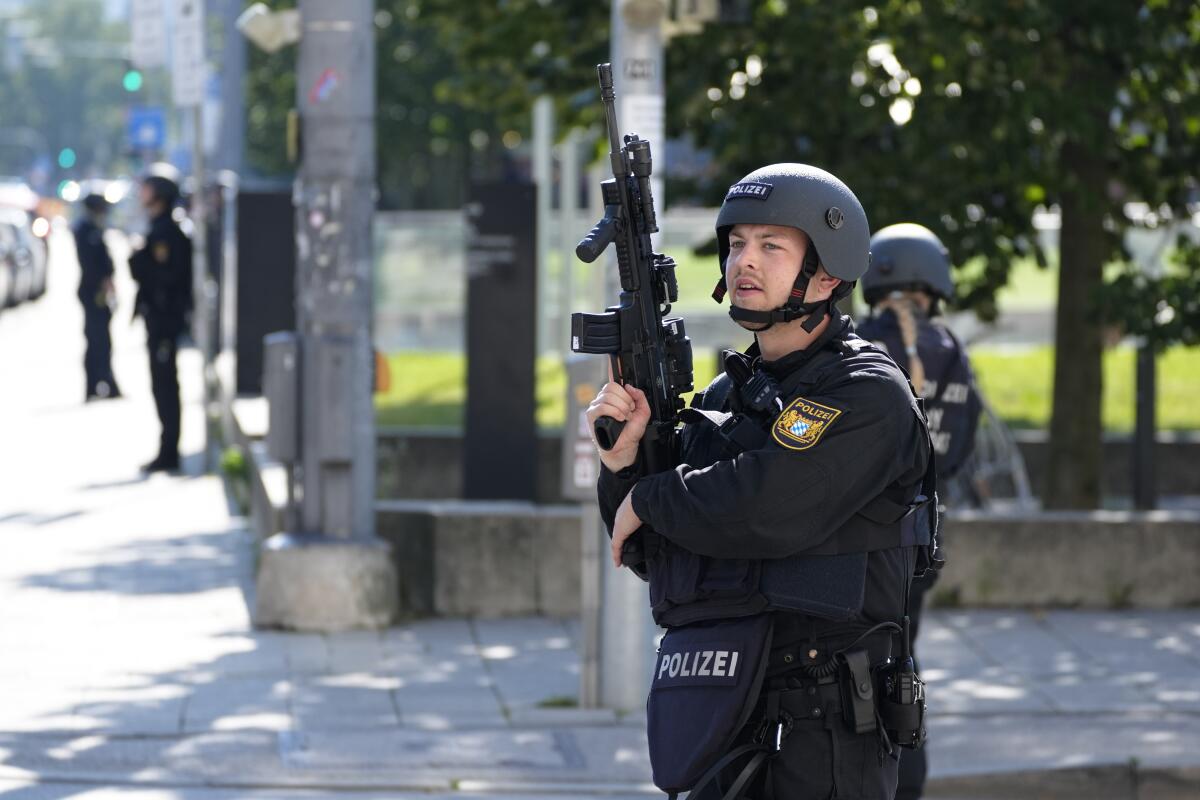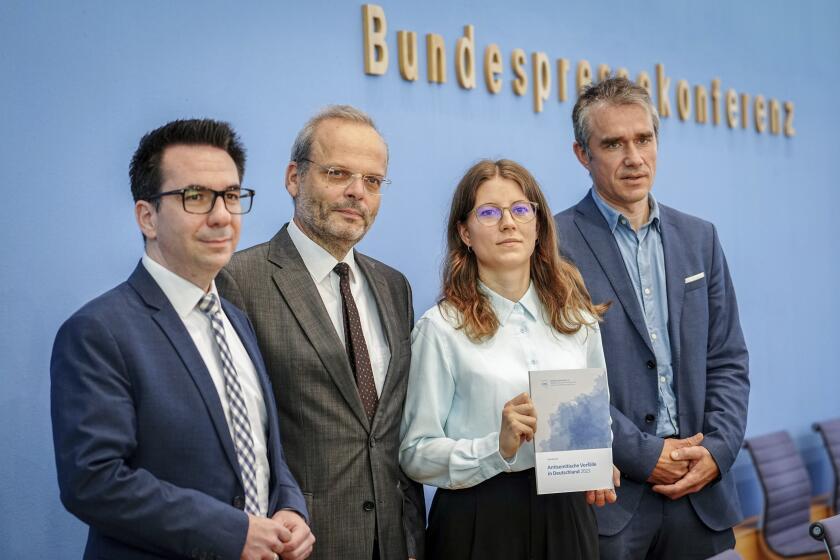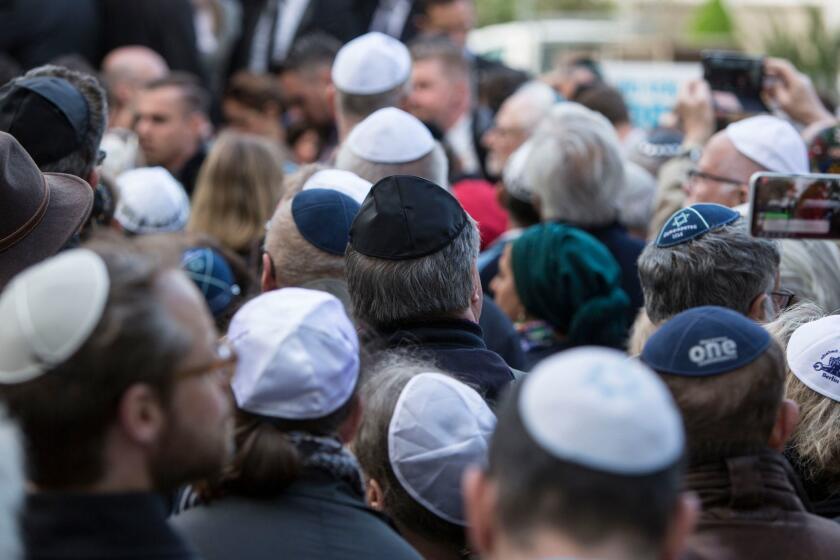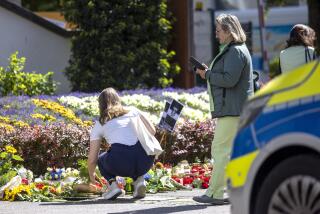Man believed to be planning attack on Israeli Consulate killed in gun battle with Munich police

- Share via
MUNICH, Germany — Police exchanged fire with a gunman near the Israeli Consulate in Munich on Thursday, fatally wounding him. Authorities said they believe he was planning to target the consulate on the anniversary of the 1972 Munich Olympics terrorist attack.
No one else was hurt in the shootout shortly after 9 a.m. near the consulate and a museum on the city’s Nazi-era history. Officers had been alerted to a person carrying a gun in the Karolinenplatz area, near downtown, and returned fire when he shot at them. The suspect, who was carrying an old long gun with a bayonet attached to it, died at the scene.
Five officers were there when the gunfire erupted. Police quickly deployed about 500 officers to the area.
Police said the gunman was an 18-year-old from Austria, but investigators were still looking into his motive. They didn’t give further details about the suspect, whose car was found near the scene.
“We have to assume that an attack on the Israeli Consulate possibly was planned early today,” Bavaria’s top security official, state Interior Minister Joachim Herrmann, told reporters at the scene. “It’s obvious that, if someone parks here within sight of the Israeli Consulate ... then starts shooting, it most probably isn’t a coincidence.”
A group that tracks antisemitism in Germany says it recorded an overall increase of more than 80% in incidents last year.
Prosecutors and police said in a statement later Thursday that they believed the plan was for “a terrorist attack, also with respect to the consulate of the state of Israel,” and that they were still investigating the man’s motive.
Thursday was the 52nd anniversary of the attack by Palestinian militants on the Israeli delegation at the 1972 Munich Olympics, which ended with the death of 11 Israeli team members, a West German police officer and five of the assailants.
“There may be a connection — that must be cleared up,” Bavarian Gov. Markus Soeder said.
Police said there was no evidence of any other suspects connected to the shooting Thursday.
The Austria Press Agency reported that the assailant, an Austrian citizen with Bosnian roots, had come to the attention of authorities there last year but wasn’t considered high-risk. Without naming sources, it said that data and a video game had been found on his cellphone that suggested closeness to Islamic extremist ideology, but an investigation of him for possible membership in the extremist group Islamic State was dropped. Prosecutors in Salzburg wouldn’t immediately comment.
Thousands of Germans participated in spirited rallies Wednesday to show their support for the country’s Jewish community and protest against an ominous wave of anti-Semitism.
Israel’s Foreign Ministry said the consulate was closed Thursday due to a memorial ceremony for the 1972 attack and none of its staff was hurt. The nearby Munich Documentation Center for the History of National Socialism, which opened in 2015 and explores the city’s past as the birthplace of the Nazi movement, also said all of its employees were unharmed.
Israeli President Isaac Herzog said he spoke with German counterpart Frank-Walter Steinmeier. He wrote on the social media platform X that “together we expressed our shared condemnation and horror” over the shooting.
The head of Germany’s main Jewish organization, Josef Schuster, said, “There could have been a catastrophe in Munich today” and thanked police for intervening quickly.
Soeder and German Interior Minister Nancy Faeser reiterated their strong commitment to protecting Jewish and Israeli facilities.
Schrader and Moulson write for the Associated Press. Schrader reported from Munich and Moulson from Berlin. AP writer Stefanie Dazio in Berlin contributed to this report.
More to Read
Sign up for Essential California
The most important California stories and recommendations in your inbox every morning.
You may occasionally receive promotional content from the Los Angeles Times.












